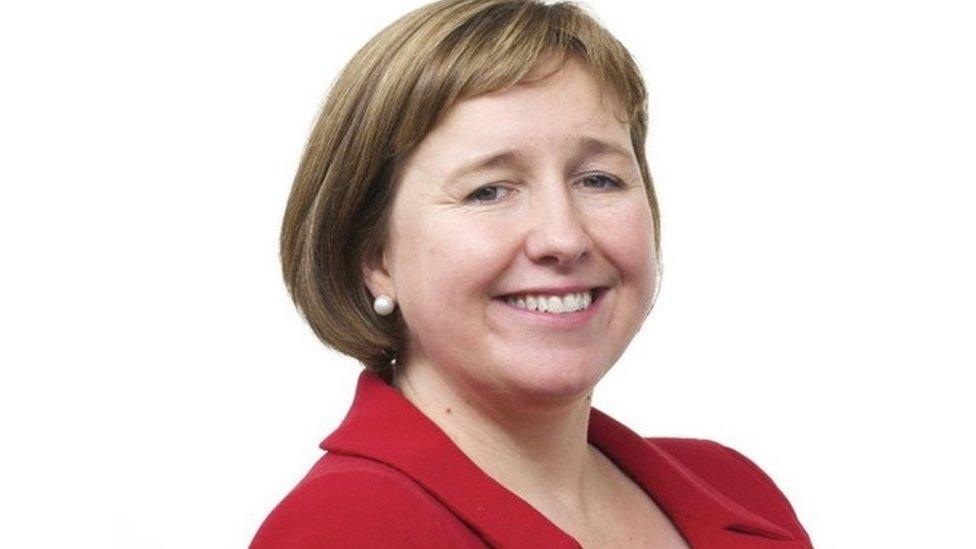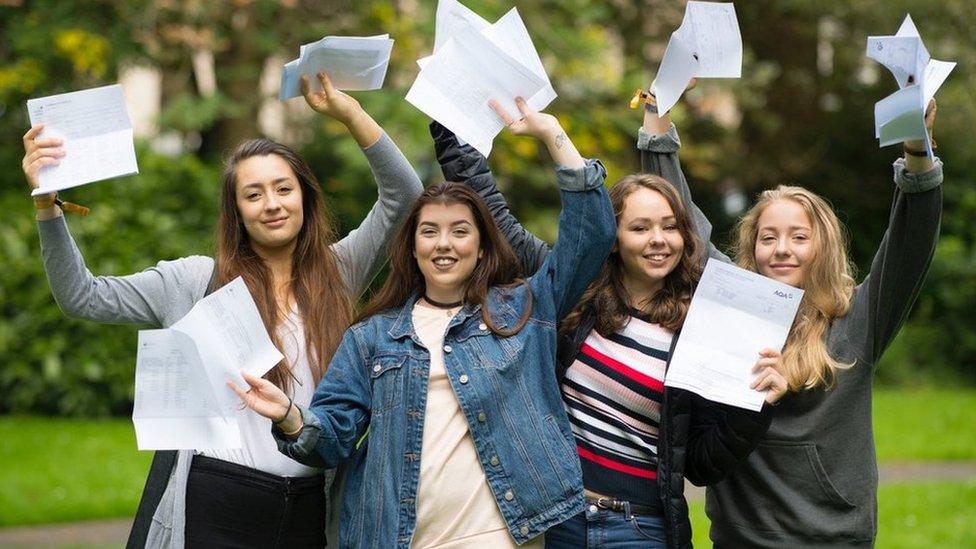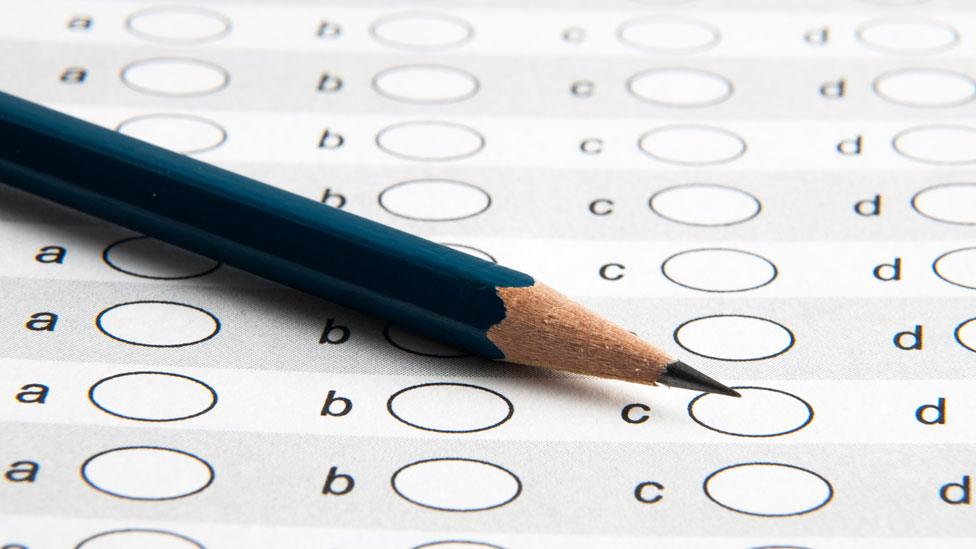School deprivation funding probe launch
- Published

Lynne Neagle said it was 'critical' every child had the same educational opportunities regardless of their circumstances
A new inquiry is to look at whether targeted funding is helping improve the performance of specific groups of pupils and schools.
Recent figures showed a sharp drop in pupils eligible for free school meals who received five good GCSE passes.
In 2017, 41.1% achieved at least five A* to C grades in Wales, down from 71.6% in 2016.
The Assembly's children, young people and education committee chair said the fall in standards is "concerning".
The gap between free school meal pupils and others, when core subjects were included, was 32.3%, up 1.1% on 2016.
The Welsh Government however have said policy changes had led to a "discontinuity" between this year and the previous year's data.
Committee members will focus on the Welsh Government's pupil development grant (PDG), and the now-ended Schools Challenge Cymru programme.
More than £90m a year is spent on PDG, which specifically works towards helping children in more deprived areas at primary and secondary level.
'Right areas'
In its recent education plan, the Welsh government said that reducing the attainment gap was a key aim of its "national mission".
Lynne Neagle, committee chair, said: "The recent fall in standards in schools in receipt of the PDG is particularly concerning and goes against the general trend of improvement over the past decade."
"We will be looking at why that is and what schools and the regional education consortia are doing to make sure the millions of pounds set aside each year are going to the right areas in the right way."
A public consultation on targeted funding has also been launched, with the deadline for contributions set for 5 January 2018.
- Published24 August 2017

- Published5 October 2017
